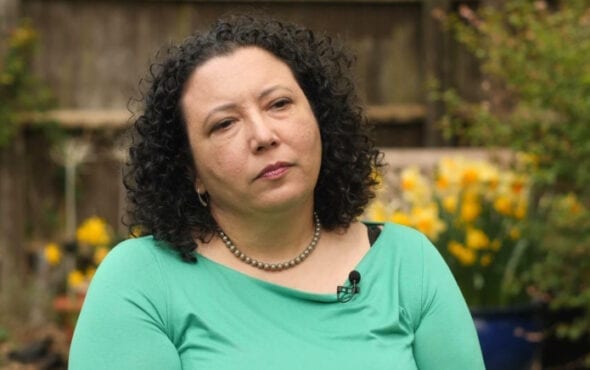
Maya Forstater has won an appeal against an employment tribunal over her “gender critical” views.
In 2018, the researcher was at the forefront of controversy after posting various tweets about her beliefs about sex and gender, including that biological sex cannot be changed and that transgender women are “not women”.
Forstater also opposed the proposed reform of the Gender Recognition Act (GRA), which would allow transgender people to self-identify and legally transition from the gender assigned to them at birth without being diagnosed by a medical professional.
The following year, her contract with employer Centre for Global Development (CGD) was not renewed after several of her colleagues filed complaints. Forstater subsequently took the think-tank to an employment tribunal, where she argued that she was discriminated against for her gender critical views.
At the time, the employment tribunal ruled that Forstater’s views degraded transgender people so cannot be qualified as a protected belief, with the judge stating her anti-trans views are “not worthy of respect in a Democratic society”.
On Thursday (10 June), Mr Justice Choudhury said Forstater’s views fall under the protected characteristic of “religion or belief” in the Equality Act 2020 and that the original tribunal had “erred in law”.
Choudhury noted how Forstater’s comments “may well be profoundly offensive and even distressing,” but they “must be tolerated in a pluralist society”.
However, he did add: “This judgment does not mean that those with gender-critical beliefs can ‘mis-gender’ trans persons with impunity. The claimant, like everyone else, will continue to be subject to the prohibitions on discrimination and harassment that apply to everyone else.”
Recognising that transgender people will be disappointed with the outcome, Choudhury said he did “not agree” that the judgement would “create a ‘two-tier’ system between natal (cisgender – when your gender identity matches the one you were assigned at birth) women and trans women, with some trans women fearing that it will give licence to people seeking to harass them.”
Following news of the verdict, Forstater said in a statement: “I am delighted to have been vindicated. I lost my job simply for expressing a view that is true and important, and held by the great majority of people in this country: sex matters.
“Being a woman is a material reality. It is not a costume or a feeling. Institutions that pretend sex doesn’t matter become hostile places for women, in particular.
“After this judgment, employers and service-providers that ignore sex and silence women who object, need to consider whether they are acting unlawfully, and the substantial legal risks they face if they do not change their approach.”
Amanda Glassman, executive vice president of CGD (Center for Global Development), said: “The decision is disappointing and surprising because we believe Judge Tayler got it right when he found this type of offensive speech causes harm to trans people, and therefore could not be protected under the Equality Act.
“Today’s decision is a step backwards for inclusivity and equality for all. We’re currently considering the various paths forward with our lawyers.”
Mermaids, the leading transgender charity in the UK, also criticised the decision. Lui Asquith, Director of Legal and Policy, said: “This is not the win anti-trans campaigners will suggest in the coming days.
“We as trans people are protected by equality law and this decision in the Maya Forstater case does not give anyone the right to unlawfully harass, intimidate, abuse or discriminate against us because we are trans.
“The judgment clearly states that it: ‘…does not mean that those with gender-critical beliefs can ‘misgender’ trans persons with impunity. The Claimant, like everyone else, will continue to be subject to the prohibitions on discrimination and harassment under the Equality Act 2010.’
“Maya Forstater has not been told her conduct was lawful. The Tribunal found – and this is key – that the misgendering of trans people is NOT part of Forstater’s protected belief and that misgendering could harass and discriminate against trans people.
“The judgment states: ‘Whether or not conduct in a given situation does amount to harassment or discrimination within the meaning of the Equality Act will be for a tribunal to determine in a given case.'”



